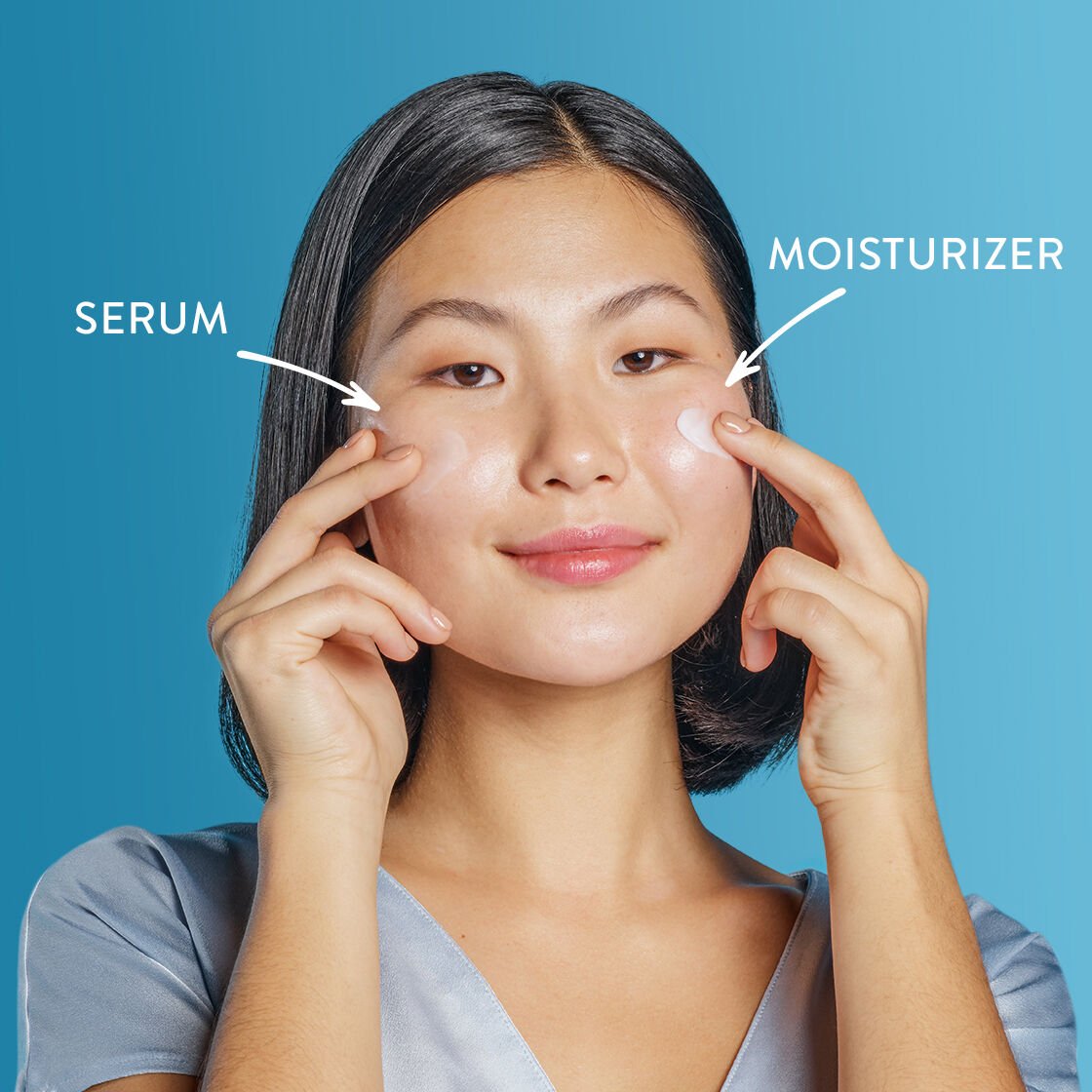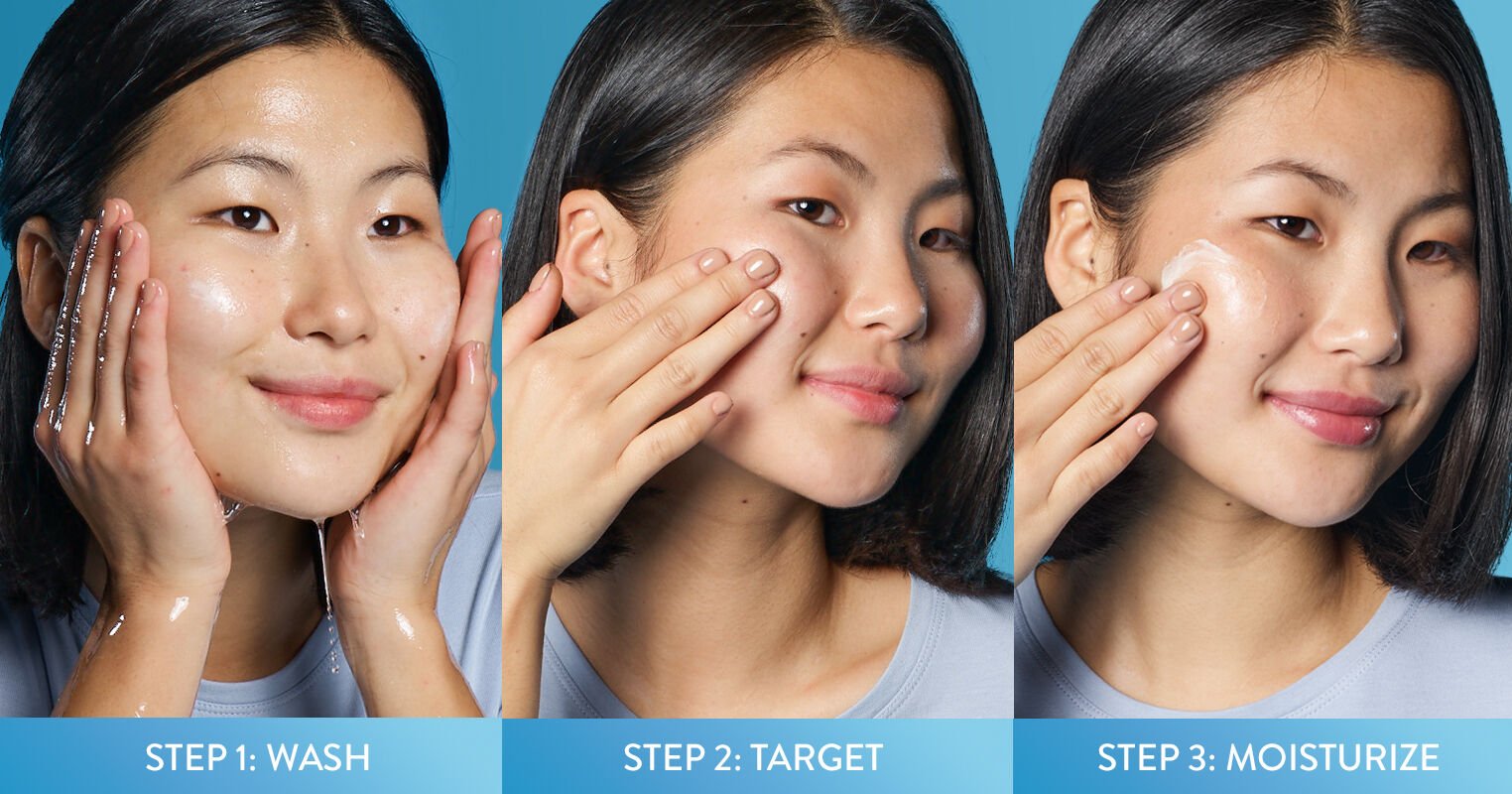Do I need both a serum and moisturizer?
When deciding upon the best skincare routine for your skin type, you may have had to ask yourself, “Do I need both serum and moisturizer?” Find out the differences between serums and moisturizers, and which you should incorporate into your routine below.

What is a serum?
Serums allow your skin to lock in moisture after cleansing which can be hugely beneficial in addressing dullness, the appearance of fine lines, or acne-prone skin. The use of a serum can be key for keeping skin hydrated.
You can use serums to minimize water loss from your skin’s cells, which helps reduce the appearance of fine lines and wrinkles. Like many cosmetic products, most serums are water-based and can be used as a solvent to dissolve other ingredients. Other serum ingredients are often lubricating or thickening agents, such as seed oils. For example, Cetaphil’s Optimal Hydration Illuminating Lotion Serum contains helianthus annuus (sunflower) seed oil as a thickening agent. Thickening agents are used to give serums their desired consistency.
Serums are topical products that contain concentrated amounts of ingredients, so molecules will penetrate the skin’s epidermis for optimum effectiveness, making them beneficial to all skin types and skin conditions. The high concentration of ingredients also means that beneficial effects may be seen relatively quicker than other products.
What is a moisturizer?
Moisturizers help skin with water retention and rejuvenation. Dry skin manifests in many ways with different degrees of severity from person to person. If you have dry skin, you may experience temporary rough and flaky skin patches, and others may experience cracks in the skin or redness due to dryness. It’s also important to remember that dry skin isn’t always unhealthy.
The real issue of dry skin is the discomfort it can cause and a potential weakening in the skin barrier. Maintaining a solid skincare regime with moisturizer helps keep these signs at bay and will help protect the skin from dryness.

Serum vs. moisturizer: what’s the difference?
A serum is different from a moisturizer; serums tend to be thinner with a higher concentration of ingredients. Serum is typically applied to the skin after cleansing within a skincare routine but before moisturizing. Although, you can use a serum as a standalone product.
Serums include a high concentration of ingredients that are hugely beneficial to skin and maintenance. The high concentration of such ingredients enables serums to absorb quickly, making them well-suited to tackling common problems such as dryness, acne-prone skin, itchiness, and aging-looking skin. For this reason, serums are amazing products to use in any moisturizing task.
What does a serum do for your face?
Serums help skin retain its moisture and intensely target skin issues such as the appearance of fine lines or aging, acne-prone skin and dullness. They penetrate the skin’s epidermis to protect it from dryness and alleviate signs of aging, while also benefiting those with sensitive skin. Their high concentration of ingredients and molecules means that they can work on the skin quickly and effectively.
What's the difference between serum and face oil?
Serums are traditionally water-based; however, more face oils are increasingly marketed as serums. Water-based serums are essential because they nourish the skin from their high concentrate ingredients. They’re intended to keep the properties of other creams and moisturizers in place and work as a base, often with ingredients such as hyaluronic acid or glycolic acid, which work to maintain the skin’s water levels.

How to use serums and moisturizers together
The best way to use any product is on clean skin, so cleaning and washing is the first step to your skincare routine. After that, it’s fine to start layering products.
Serums are essentially a quick shot of excellent skincare, so applying them after cleansing and toning means that you will be giving your skin a much-needed shot of care. They allow your skin to soak up all the nutrients and ingredients they include. Taking the added step of moisturizing means that you are able to keep those benefits locked in. Similarly, using a serum at night gives your skin time to get on board with these products and wake up with all the benefits that a serum can bring.







